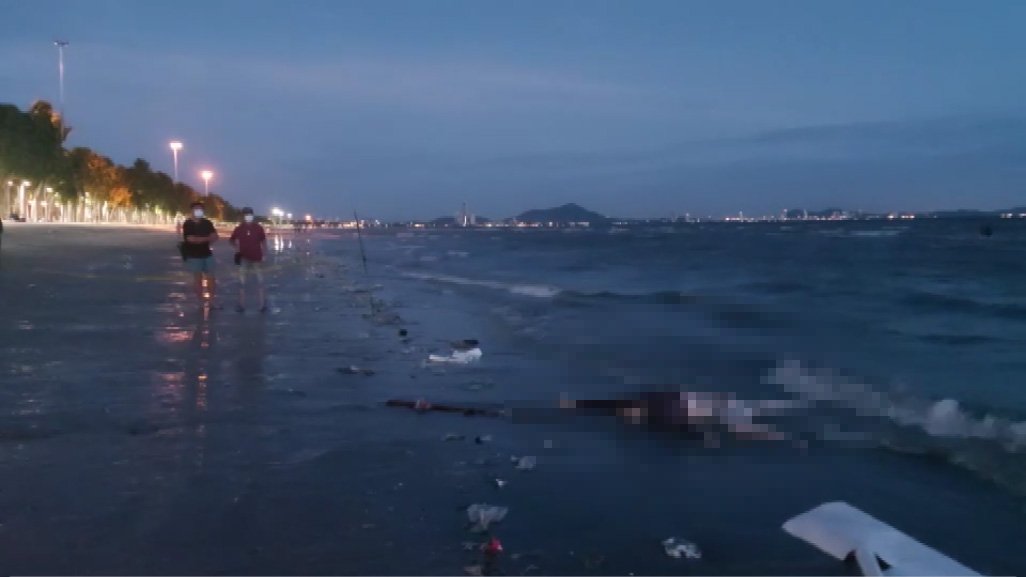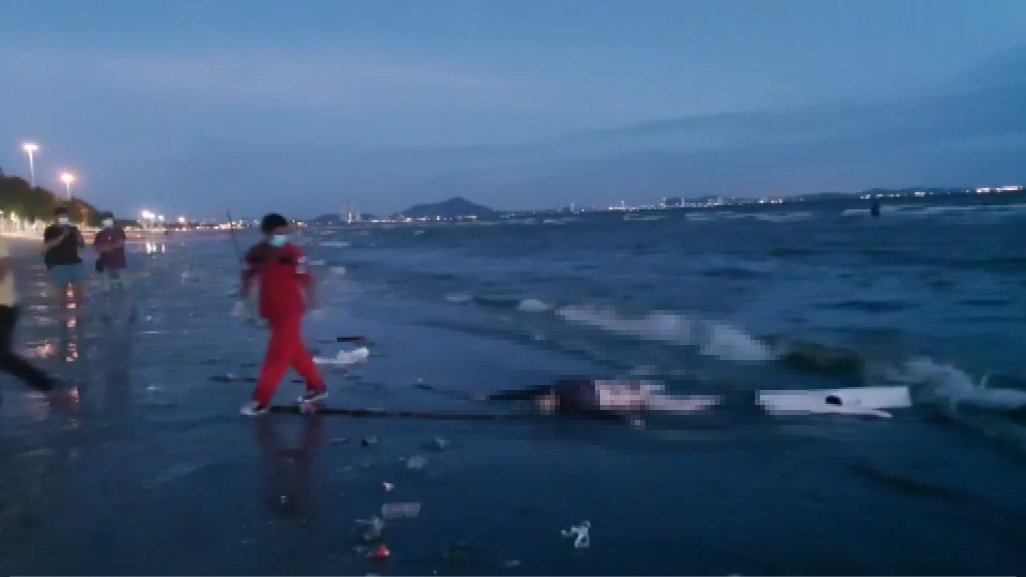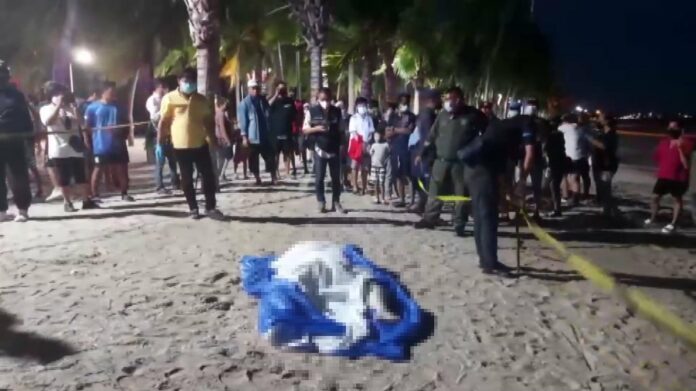Bangsaen/Saensuk —
Tourists were reportedly shocked after finding an unidentified body on Bang Saen Beach this morning. Emergency responders later said the body belonged to a Burmese boat worker who fell into the sea recently and went missing.
Today, May 24th, tourists alerted police of a body found lying on Bang Saen Beach, Saensuk sub-district, Mueang district, Chonburi just before dawn.

According to the report, the body belonged to a 40-year-old Burmese man named Phu Sao. He was wearing only a red long-sleeved shirt.
Sarawut Chang-ngern, an emergency responder who rescued the body, estimated that the victim had been dead for two to three days. Previously, Sarawut had gotten a missing person report for a boat worker who had fallen into the sea near Koh Pai and gone missing and thought it was the same person.

The employer of the victim, whose name was withheld, went to inspect the body and later confirmed that it was her worker who had gone missing since May 20th. However, she had already reported the case to the Pattaya Police Station and the Khlong Dan Police Station prior to this discovery.
Initially, the body was transferred to the Chonburi Hospital for a preliminary autopsy.
